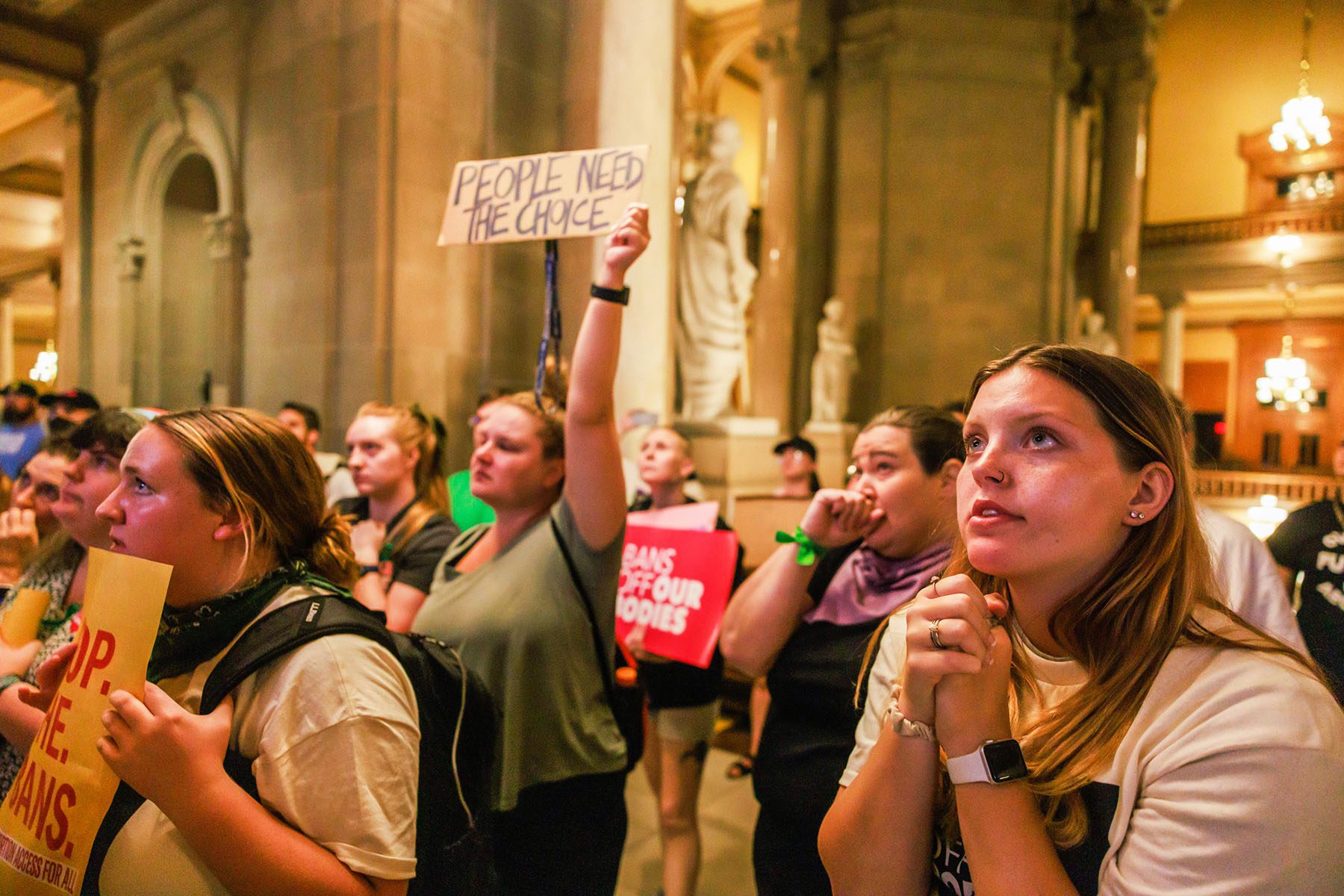Roe v. Wade’s overturn may have meaningfully shifted public opinion on abortion for the first time in years, a change that could affect what kinds of bans or restrictions abortion rights opponents can safely consider.
Polling on abortion, while complicated to pull off, had long been relatively static. For decades, most Americans have identified as “pro-choice,” believing that abortion should be legal “under certain circumstances,” according to Gallup. Since the 1990s, around 60 percent of Americans have also supported the right to an abortion in the first trimester of pregnancy. And for just as long, polling has also found that support for abortions in the second trimester has consistently been lower than for those in the first, Gallup has found — falling from that 60 percent approval to somewhere between 25 and 30 percent of Americans.
Public opinion on second-trimester abortions has informed how some Republicans — including South Carolina Sen. Lindsey Graham and Florida Gov. Ron DeSantis — have framed abortion access in the post-Roe world, pushing for laws that would ban abortion after 15 weeks of pregnancy.
But sharp backlash to those proposals — alongside shifting public opinion data — suggests that when 15-week abortion bans go from theoretical to looming reality, Americans may be less likely to favor banning abortion in the second trimester.
Republicans quickly distanced themselves this week from Graham’s bill for a 15-week national abortion ban, which only has three cosponsors. (A comparable bill in the House of Representatives has 86 cosponsors, which is sizable but still less than half of the Republican caucus.)
That hesitation may reflect a nascent shift, some public opinion experts said.
“As voters are thinking about this, and as I think – more meaningfully – states pass these bans and they’re seeing women denied abortion care in cases they feel are appropriate and necessary, I think they are moving,” said Molly Murphy, a pollster and president at the Democratically-aligned firm Impact Research. “I do think there has been a shift, and that voters are more aware of what these bans do and what they mean.”
A poll conducted in part by Impact Research in March — months before Roe v. Wade was overturned in the case known as Dobbs v. Jackson Women’s Health Organization — found that most Americans favored laws banning abortions after 15 weeks. A poll done in August, after the Dobbs decision was released, found the opposite.
The results can’t be perfectly compared. In March, respondents were asked about a 15-week ban that had exceptions for cases of pregnancy resulting from rape and incest. In August, the hypothetical 15-week ban lacked such exceptions. But they fit within a larger pattern, Murphy said. In March, 11 percent of people in that poll were likely to say abortion should be outlawed in all cases, and 55 percent said it should be legal in all or most cases. In August, the percentage of people who favored total bans fell to 6 percent; the percentage supporting abortion in all or most cases rose to 60 percent. A 19th News/SurveyMonkey poll done in August also found 60 percent of American adults said abortion should be legal in all or most cases.
“The average voter doesn’t spend much time thinking about abortion and they don’t spend much time rethinking their beliefs unless they have to,” Murphy said. “What the Dobbs decision has done has forced people to reexamine their beliefs, and as they have, they’ve moved toward more abortion access.”
Meanwhile, polling from the Public Research Religion Institute – also conducted after the Dobbs decision — found that 52 percent of Americans opposed laws banning abortion after 15 weeks of pregnancy. Most Democrats and most independents opposed such bans, PRRI found.
PRRI doesn’t have historical data on 15-week bans, specifically. But that organization has also seen a meaningful increase in the number of Americans saying abortions should be legal in all cases. In 2010, only 18 percent of Americans favored that policy, per data shared with The 19th. In the most recent post-Dobbs polling, 33 percent said so. In that same time period, the percentage of Americans who said abortions should be banned entirely fell from 15 to 8.
The change likely reflects the fact that overturning Roe made more Americans revisit their views on abortion, said Melissa Deckman, PRRI’s CEO.
“It was one thing to say, ‘It’s reasonable to have restrictions’ when Roe was law of the land. It was more abstract,” she said. “Now it’s a situation where [people are asking] ‘what should those restrictions, if any, look like.’ It’s rejiggered the conversation.”
Still, if Republicans take back both chambers of Congress in the November midterm elections — which seems less likely, with Democrats’ odds of holding the Senate improving – and win the White House in 2024, it’s not clear if the shifting public consensus would deter them from pursuing an abortion ban, Deckman said.
On a state level, the impact of shifting public opinion is perhaps even less, suggested Michael Binder, a pollster at the University of North Florida. Polling conducted by the university found that most Floridians opposed a 15-week abortion ban — but because many Republicans, who control the state legislature, still favor restrictions, public opinion did not stop the state from passing and enforcing such a law.
In the coming years, he said, Republican support for abortion restrictions will likely matter more — at least in shaping policy in the states where the GOP retains power.
“Statewide or national public opinion isn’t particularly meaningful. What matters is the partisan support or opposition within the party in power,” he said.






